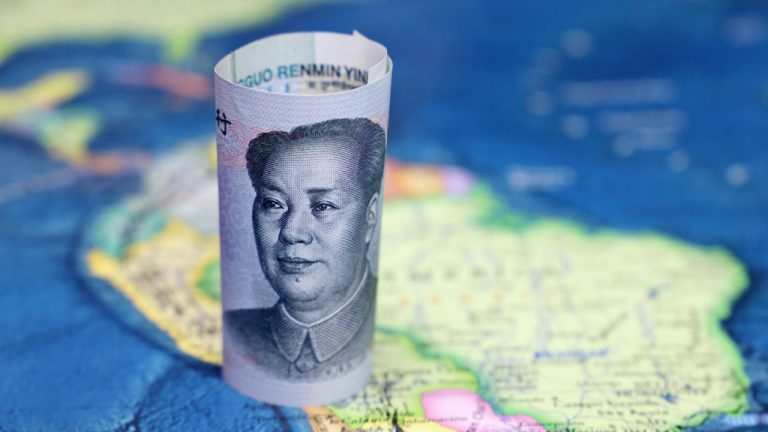
The government of Argentina is reportedly seeking to expand its de-dollarization agreement with China due to the lack of dollars that the country is facing. According to reports, Economy Minister Sergio Massa would be in talks to expand the current swap line to double the available amount from $5 to $10 billion, lent in Chinese yuan.
Argentina Seeks to Expand Swap Line Agreement With China On De-Dollarization Push
The government of Argentina would be seeking to expand the access it has to a Chinese yuan swap line in order to reduce the use of its scarce dollar reserves. According to local reports, Economy Minister Sergio Massa and Central Bank of Argentina President Miguel Pesce will be traveling to China on May 29 with the objective of doubling the free amount of money available in the swap line, taking it to $10 billion in Chinese yuan.
China had allowed the Argentine government to freely access $5 billion of the swap line, of which almost $2 billion were used during April and part of May, according to estimations. The total of the credit line amounts to almost $19 billion, or 130 billion yuan.
Massa had hinted at this possibility two weeks ago, stating that “if political conditions are met and if the Chinese Central Bank agreed,” this free amount should be expanded.
Dollar Reserves and IMF Agreement
Argentina has been facing a dangerous decrease in its foreign currency reserves, taking them to their lowest level during the last seven years. According to Bloomberg, dollar-denominated international reserves plunged to $36 billion in May. The situation is further aggravated by the continuous devaluation of the Argentine Peso, and the high inflationary levels of more than 108% year on year calculated in April.
The economic team of President Alberto Fernandez has been forced to take several measures to limit the flow of dollars from the local economy, including cutting oil companies from access to official dollars, and having to finance import payments for 90 days.
Argentina is also seeking to renegotiate the terms of its debt agreement with the International Money Fund (IMF), to accelerate the disbursements of the institution, which would have to deliver $10.6 billion between June and December.
However, the deal is being torpedoed by Vice President Cristina Kirchner, who called to ditch the repayment deal in a rally, risking the delivery of future disbursements of the institution. She stated:
If we don’t manage to get this program that the Fund imposes on its debtors thrown aside allowing us to create our own growth and industrialization and technological development, it will be impossible to pay the debt.
What do you think about Argentina’s push to de-dollarize imports due to its low dollar reserves? Tell us in the comments section below.
from Bitcoin News https://ift.tt/XiHaZ10
Comments
Post a Comment